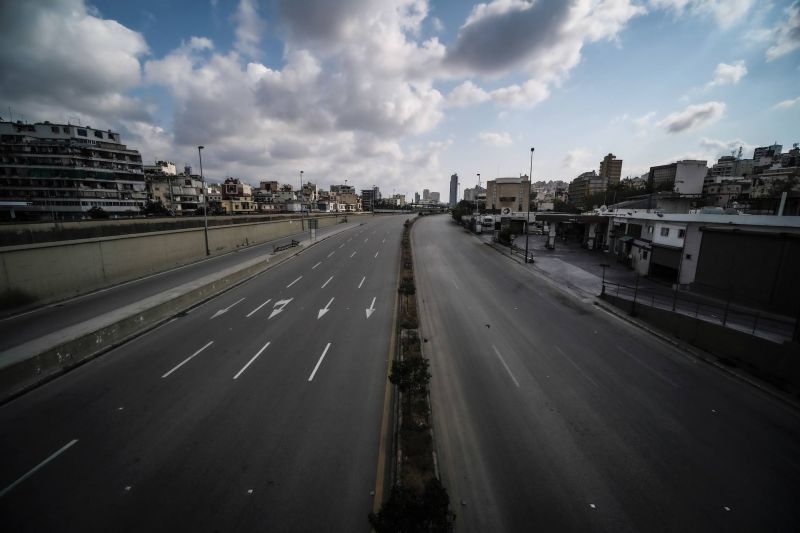
A view of a highway. (Credit: Joao Sousa/ L'Orient Today)
BEIRUT — The French-donated buses that briefly made an appearance on the streets of the capital have stopped rolling, multiple sources confirm. Indeed, they have been stopped since last week, according to Chadi Faraj, a co-founder of the NGO Riders Rights, which advocates for shared transportation.
The 10 buses, which hit the road mid-December, only had enough fuel to run for six weeks without additional funding, which has not materialized to date. Forty other buses from the French donation never entered operation due to lack of funds and manpower. But, according to one union leader, it is primarily inadequacies around workers’ rights that has stopped the program.
Raymond Felfi, president of the union of public transport workers at the Railways and Shared Transportation Authority (OCFTC, the institution’s French acronym) characterized the stoppage as a “strike.”
Felfli told L’Orient Today that workers at OCFTC have not received social assistance, transportation allowances, or cost of living allowances enacted for the public sector by various government decrees in 2022, nor have they received their productivity compensation for August and September 2022. OCFTC director Ziad Nasr corroborated Felfli’s statements.
“The reason is that the Finance Ministry and one of the employees isn’t interested in making the appropriate credits,” Nasr said.
Felfli said the strike decision arose from the workers’ desire to “protect our most basic rights, which have been obtained by workers in the public sector and the rest of the [public] institutions with the exception of us, despite all the promises that rained down on us to pay our accumulated dues for the entirety of 2022.”
Two of OCFTC’s 28 bus drivers told L’Orient Today in December that their monthly salaries were LL2 million ($35 at the current parallel market rate).
“In a word, we have not received anything from all these decrees, which for us are still ink on paper,” Felfli said.
For Nasr, the stoppage should not come as a surprise.
“When we launched the buses we said clearly that if the organization didn’t secure resources and expenses including diesel and fuels etc. … it wouldn’t be sustainable,” he said.
Nasr said the two conditions necessary for operation were government credits and dues owed to OCFTC employees. With neither available, the stoppage has two simultaneous causes: the strike and the lack of resources.
“Buses don’t operate without diesel and don’t operate without employees. Imagine that tomorrow we secured diesel, you need to secure me the employees,” said Nasr. “If the employee isn’t able to come to his work, carry out his duties, if he’s not able to eat and drink, he’s not able and the state isn’t giving him daily transportation — the LL95,000 daily transportation allowance, they’re not paying them it — how will he come and go? These two topics are interconnected: the rights of workers and the rights of the project.”
Faraj pointed out that the project was destined to halt no matter what the workers decided to do.
“To operate any lines, you need human and financial resources, [and] infrastructure. The drivers have the right to demand an increase, of course, but there were no resources to run the 50 buses because of the lack of capacity in the first place, and there is no preparation for any plan,” he said.
”After the stoppage of the French buses and no funds were secured for their operation, we must pause and learn from the experience that took place as a prototype for transportation projects,” Riders Rights said in a statement.
The group said it knew the buses would stop “sooner or later, and it was possible to secure resources for these buses” from port and airport revenues.
OCFTC is currently in the process of launching a tender for private sector companies to operate 95 buses from the government fleet. The conditions of the tender are currently being prepared, according to a ministry official who declined to speak on the record.